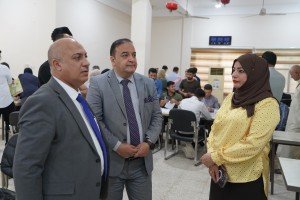
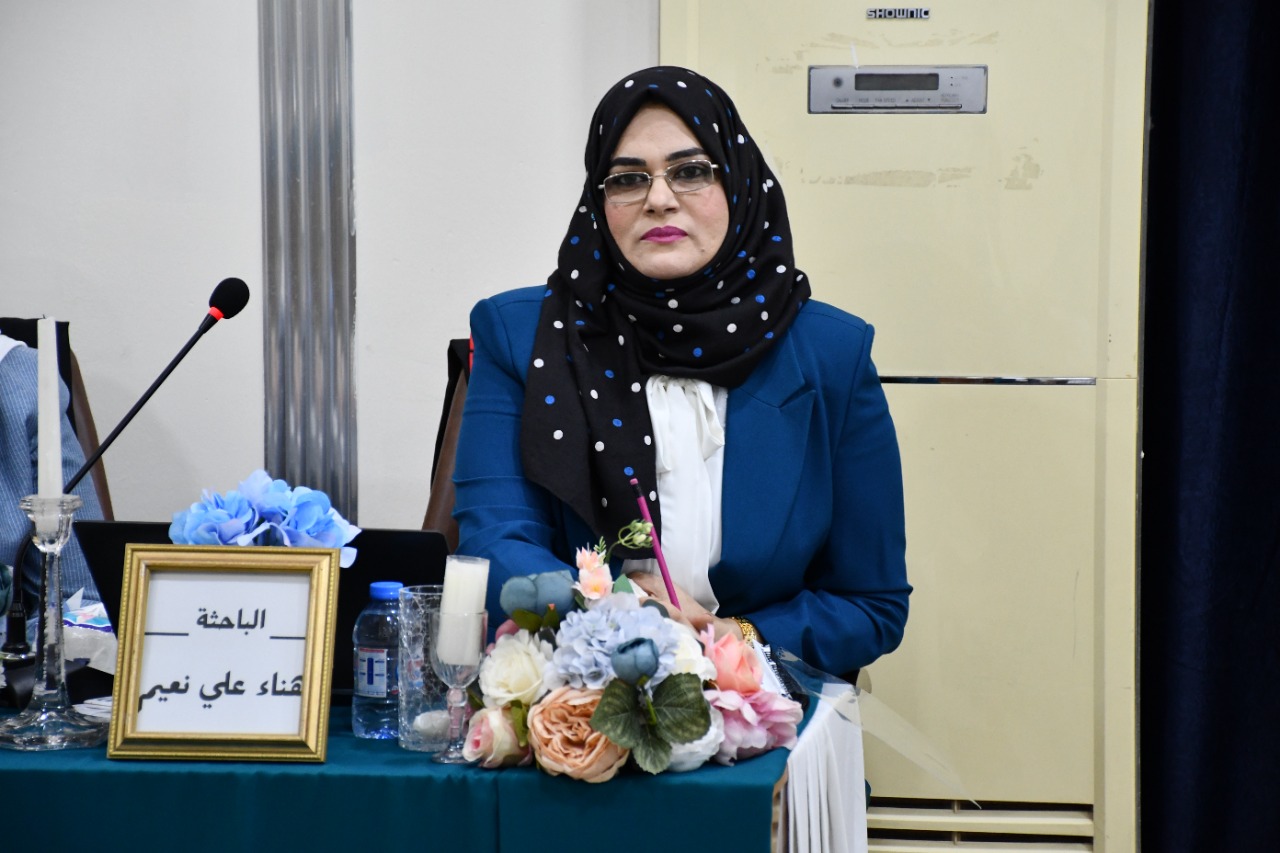
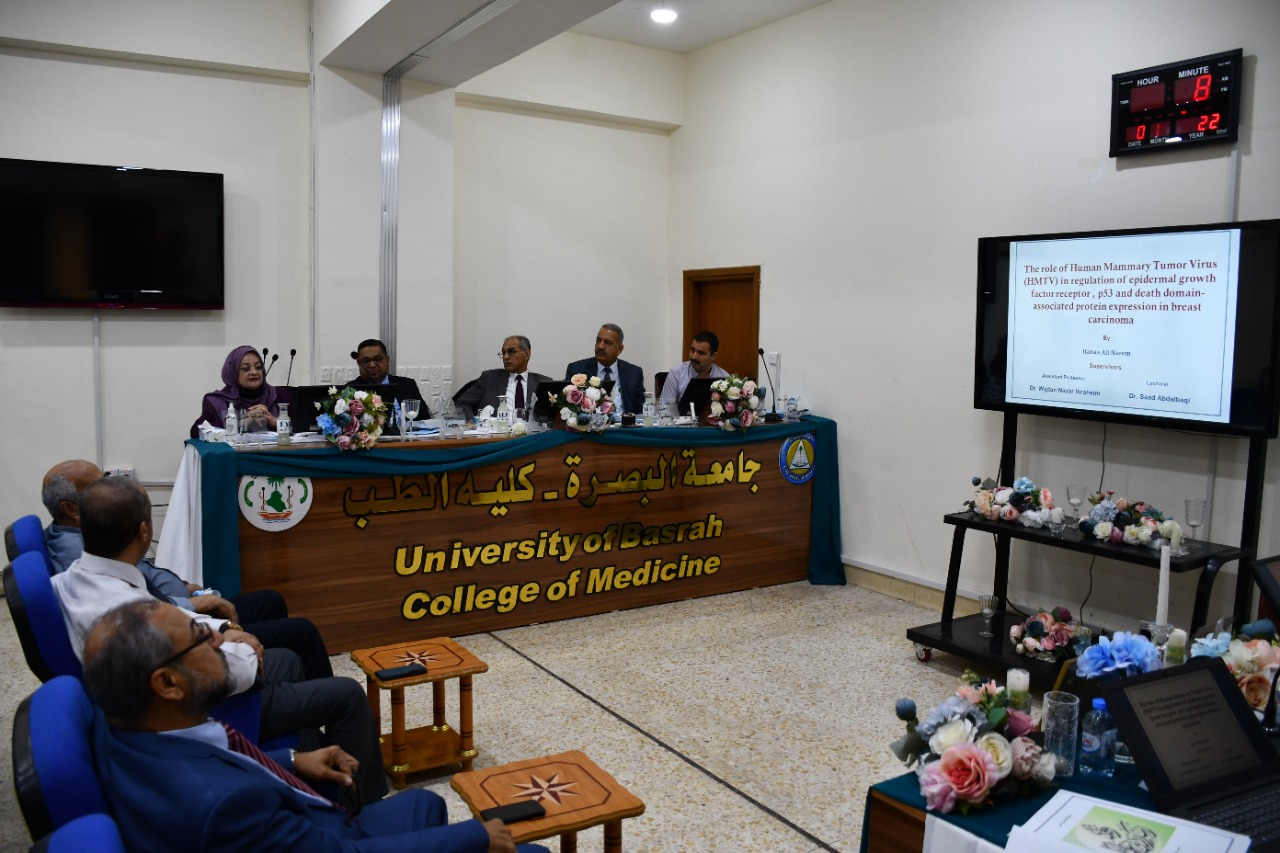
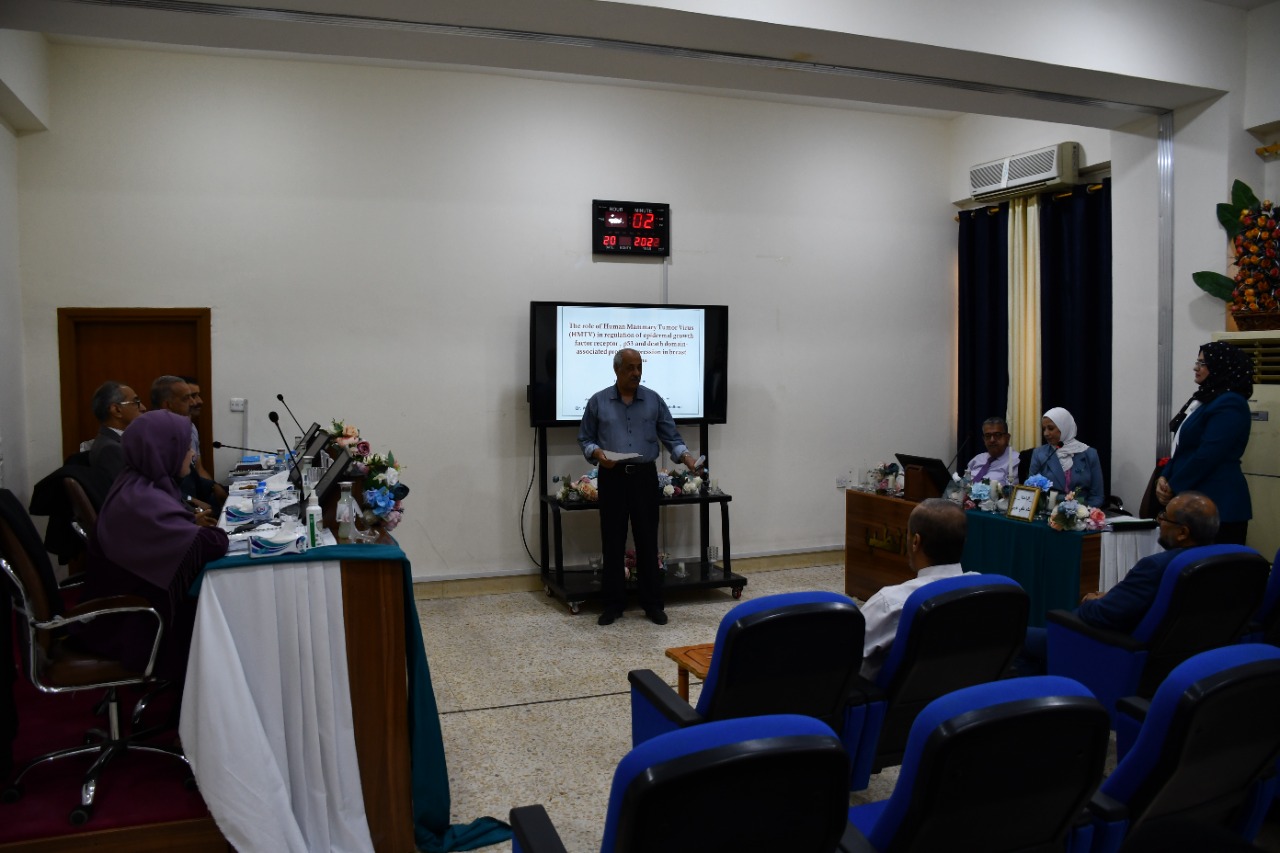
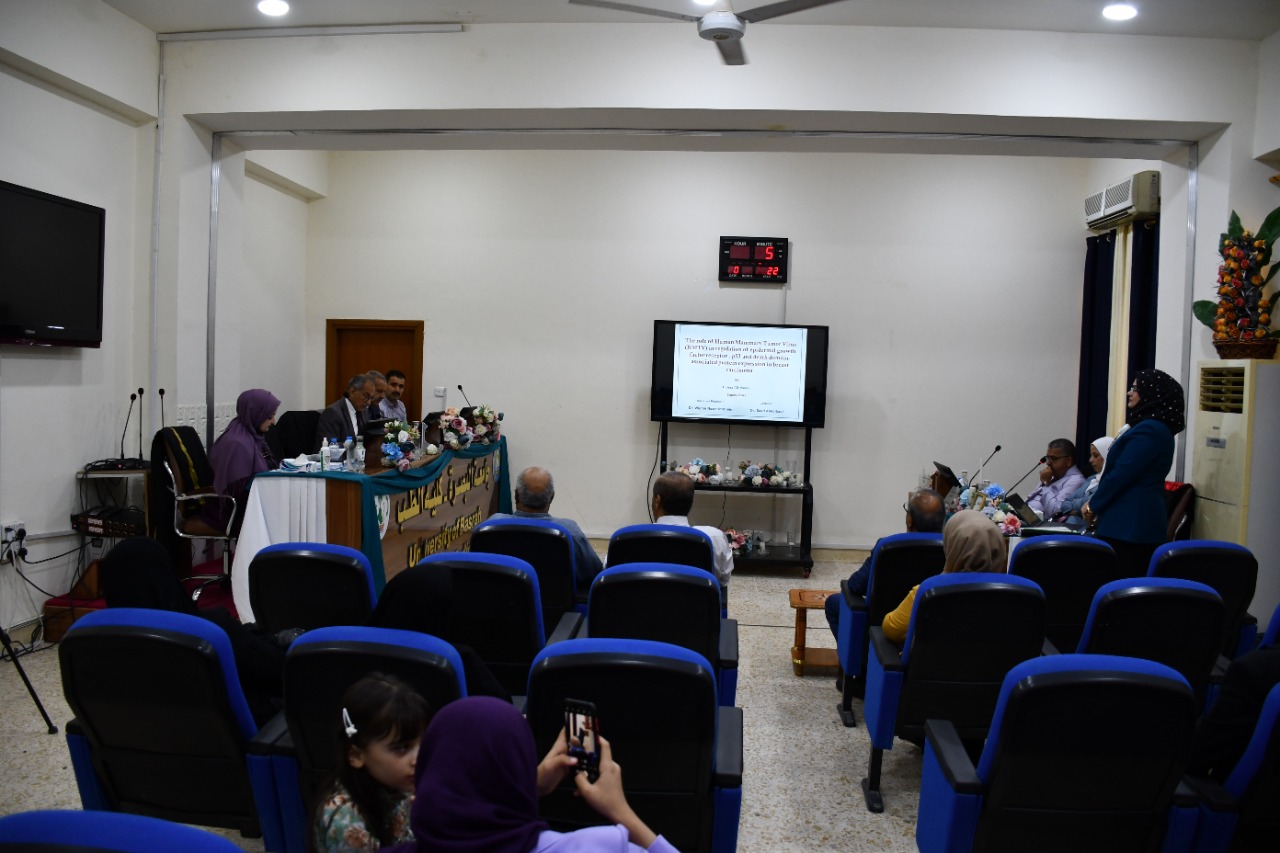
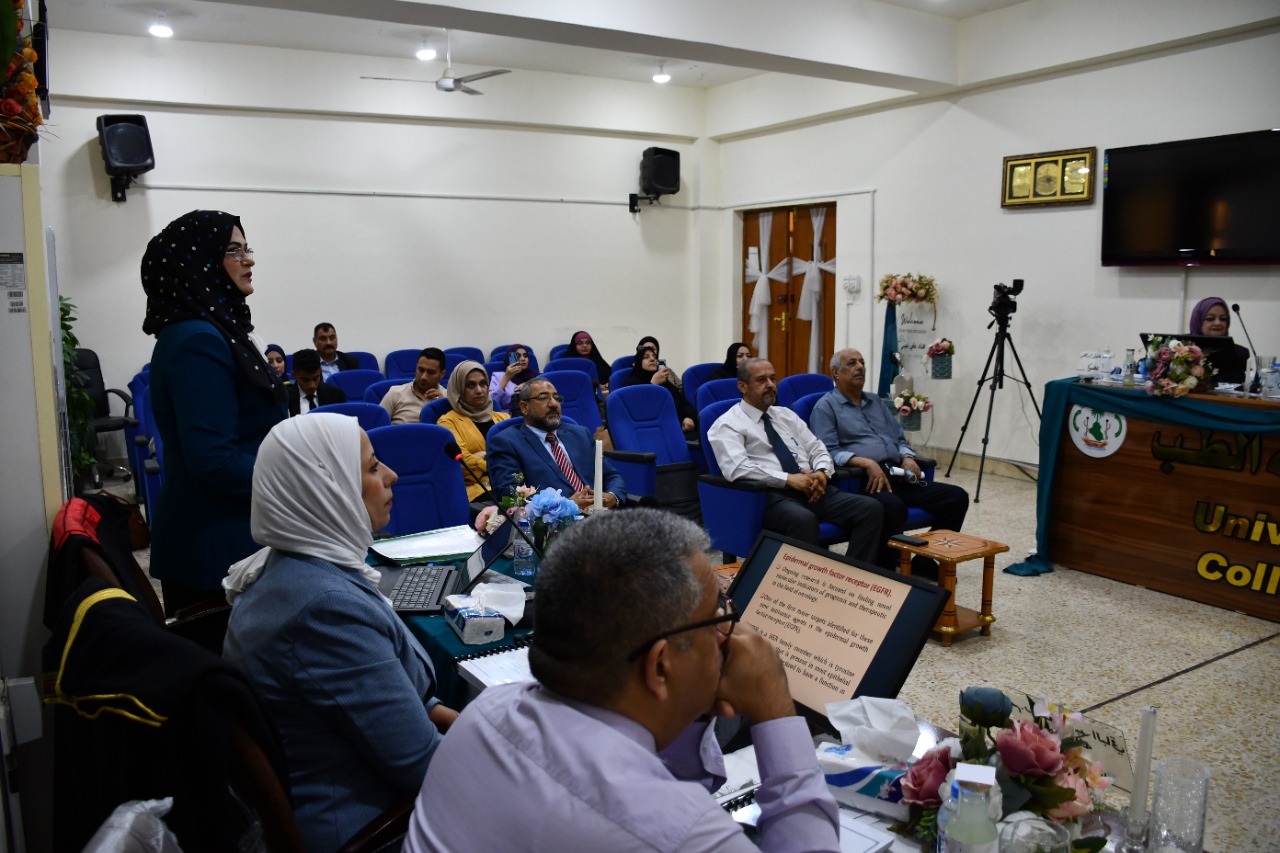
A doctoral thesis at the Faculty of Medicine at the University of Basra discussed the role of human breast tumour virus (HMTV) in regulating gene expression of the skin growth factor receptor (EGFR), protein (P53) and death-related protein (DAXX) in breast tumour tissue. The research, presented by student Hanaa Ali Naim, aims to verify that human mammary tumour virus (HMTV) is linked to breast cancer in women with primary breast cancer in the province of Basra and its role in regulating gene expression of EGFR receptors, P53 protein, and death-related protein (DAXX). When comparing the positive cases of the HMTV breast tumour virus with clinical characteristics there is no moral association for age, histological degree, hormone level and molecular subspecies of breast cancer. The study also included immunomodulatory histological chemistry (IHC) technology to detect gene expression of tumour markers. Tissue samples were prepared from 80 wax-infed tissue samples of malignant breast tumours and benign tumours and using special tissue immunoassay kits to detect the level of heterogeneity in gene expression of EGFR, P53, and DAXX in The research concluded that HMTV virus infection may be a risk factor for the development of breast cancer, while this is not the immediate cause but it is consistent with the fact that HMTV viruses may play a role in the development of some human breast cancers. More large-scale studies on virus infection and transmission, infection, and pathogenesis are needed to investigate the causative role of the disease and the association of HMTV virus in the development of human breast cancer. P53, EGFR, and DAXX all play a role in the mechanisms of cancer development and can be used as predictive markers of breast cancer





